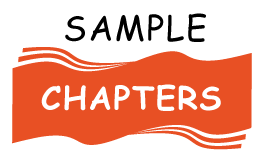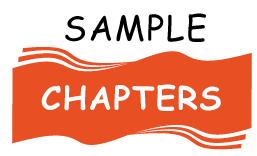Effective Book Marketing Strategies for Indie Authors

Marketing a book can be a daunting task, especially for indie authors who often do not have the support of a traditional publishing house. However, with the right strategies, indie authors can successfully promote their books, reach a wider audience, and boost sales. This article will explore effective book marketing strategies specifically tailored for indie authors.
Building an Author Platform
- Create a Professional Website
- Central Hub: Your website should serve as the central hub for all your book-related activities. Include an author bio, book descriptions, a blog, and contact information.
- SEO Optimization: Use relevant keywords to optimize your website for search engines, making it easier for potential readers to find you.
- Start a Blog
- Engage Readers: Regularly update your blog with content related to your book’s genre, writing process, and other relevant topics to engage your readers.
- SEO Benefits: Blogging helps improve your website’s SEO, driving more organic traffic to your site.
- Build an Email List
- Newsletter: Create a newsletter to keep your readers informed about new releases, book signings, and other events.
- Exclusive Content: Offer exclusive content, such as sample chapters or behind-the-scenes looks, to incentivize sign-ups.
Utilizing Social Media
- Choose the Right Platforms
- Target Audience: Identify where your target audience spends their time online and focus your efforts on those platforms, such as Facebook, Twitter, Instagram, or TikTok.
- Engage with Followers
- Regular Updates: Post regularly to keep your audience engaged. Share updates about your writing process, book releases, and personal insights.
- Interact: Respond to comments, participate in discussions, and engage with your followers to build a strong community.
- Use Visual Content
- Eye-Catching Images: Use visually appealing images and graphics to attract attention. Share book covers, promotional graphics, and behind-the-scenes photos.
- Videos: Create videos such as book trailers, author Q&As, and live readings to engage your audience further.
Leveraging Book Reviews
- Reach Out to Book Bloggers
- Review Requests: Contact book bloggers who review books in your genre. Provide them with a free copy of your book in exchange for an honest review.
- Personalized Approach: Tailor your requests to each blogger to show that you’ve done your research.
- Use Review Platforms
- NetGalley: Share your book on NetGalley to reach a large community of reviewers, librarians, and booksellers.
- Goodreads: Encourage readers to leave reviews on Goodreads, as it is a popular platform for book recommendations.
- Engage with Reviewers
- Thank You Notes: Send personalized thank-you notes to reviewers to build a positive relationship.
- Social Media Shoutouts: Share positive reviews on your social media channels to show appreciation and build credibility.
Participating in Online Communities
- Join Writer and Reader Groups
- Social Media Groups: Join Facebook groups, Reddit communities, and other online forums where writers and readers gather.
- Engage in Discussions: Participate in discussions, offer advice, and share your experiences to build connections.
- Attend Virtual Events
- Webinars and Panels: Attend and participate in webinars, virtual panels, and online book fairs to network and promote your book.
- Host Your Own Events: Organize virtual book launches, live readings, and Q&A sessions to engage with your audience.
Paid Advertising
- Social Media Ads
- Targeted Campaigns: Use Facebook and Instagram ads to create targeted campaigns that reach your specific audience.
- Promotions: Promote your book with discounts, limited-time offers, and special deals to attract new readers.
- Amazon Advertising
- Sponsored Products: Use Amazon’s advertising platform to promote your book within relevant search results and product pages.
- Budget Management: Set a budget and monitor your ad performance to optimize your campaigns.
- Book Promotion Services
- BookBub: Utilize BookBub’s promotional services to reach a large audience of dedicated readers.
- Free and Discount Sites: List your book on sites that promote free or discounted books to boost visibility.
Conclusion
Effective book marketing requires a combination of strategies tailored to your specific audience and goals. By building an author platform, leveraging social media, engaging with reviewers, participating in online communities, and using paid advertising, indie authors can successfully promote their books and reach a wider audience. Embrace these strategies, stay persistent, and watch your book sales grow.
For more tips on the publishing process and marketing strategies, check out our article on Steps in Publishing a Book: Acquiring Knowledge, Research, Collaboration, Tools, and Process.



